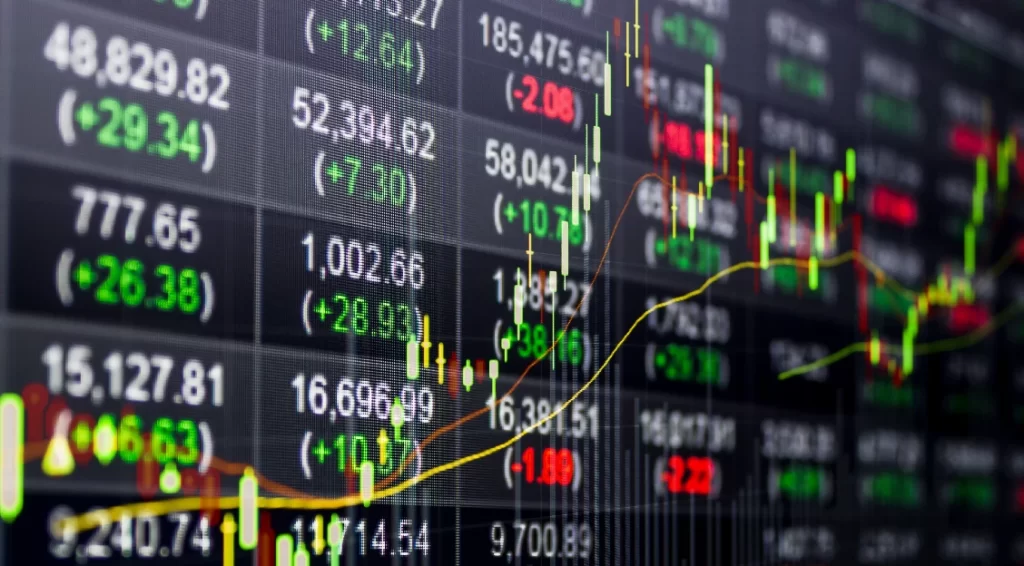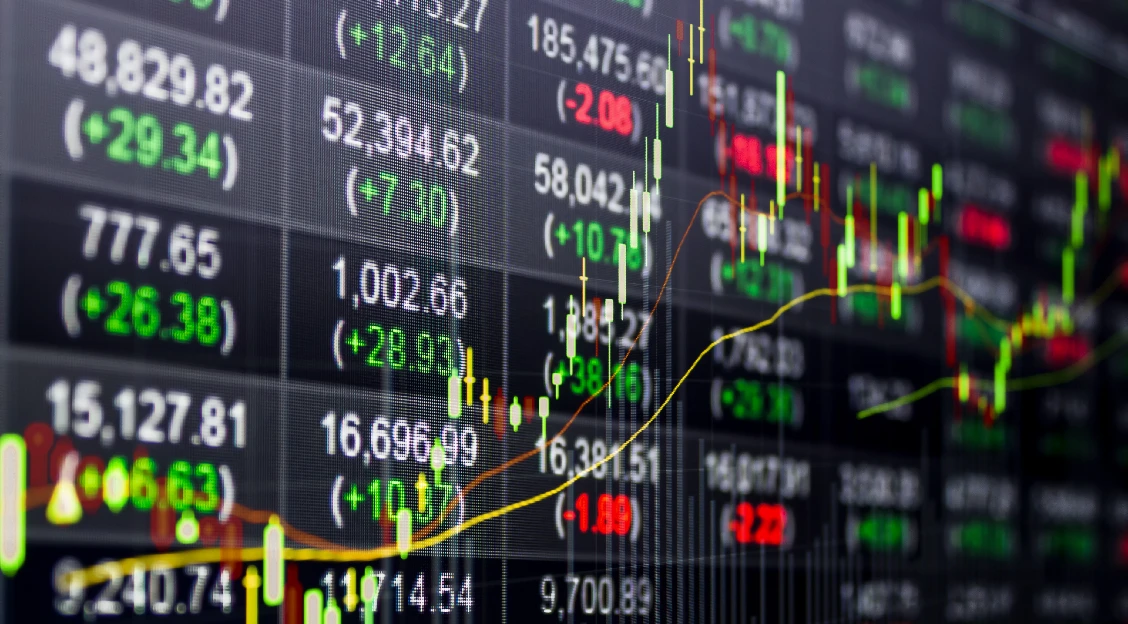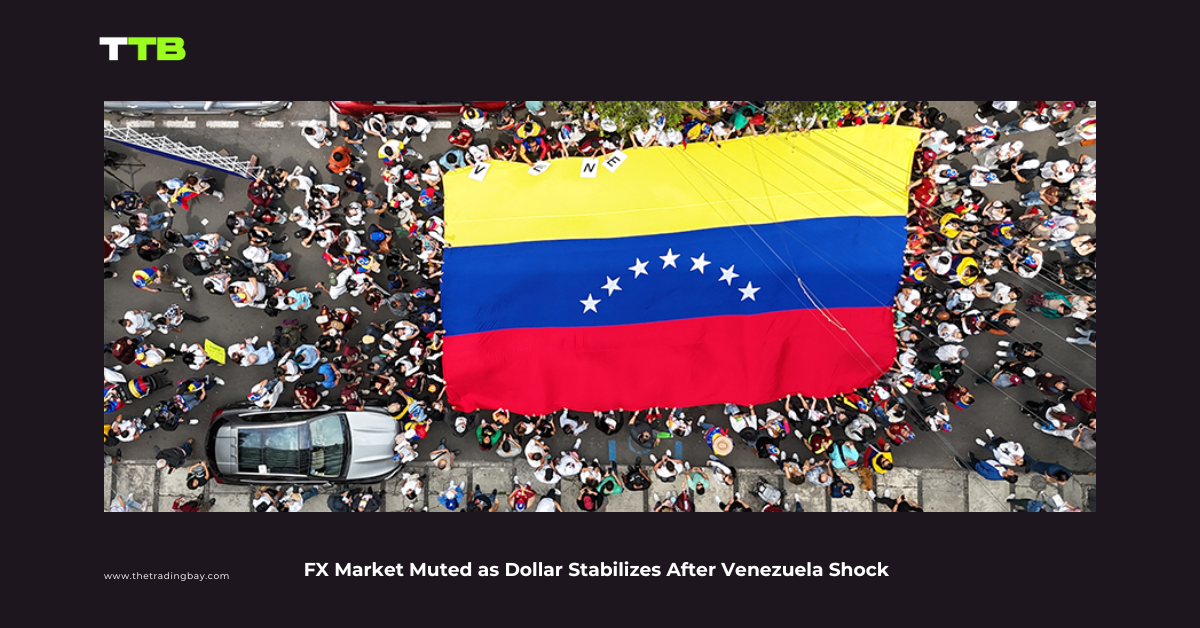
The stock market is a tumultuous arena where investors are constantly engaged in the pursuit of capturing price fluctuations. While it is impossible to predict with absolute certainty how a stock’s price will behave, there are a plethora of factors that can influence the delicate balance between supply and demand, ultimately driving the stock’s value.
This article will cover the primary drivers behind fluctuations in stock prices, which range from the internal factors within a company to external factors like broader economic conditions and investor sentiment.
Company-related factors
At the forefront, fundamental factors, which include a company’s financial performance and internal happenings, play a crucial role in determining the price of its stock.
Ideally, a company with robust financial metrics such as a strong balance sheet, favorable profit ratios, and revenue growth often draws more investor interest, which drives up demand and eventually causes its stock price to rise. In the reverse case scenario, demand is subsided and the company shares keep losing their value.
Generally, there are two main categories of fundamental factors that can impact the pricing of a stock: earnings metrics and valuation multiples.
Earnings per share (EPS) and free cash flow are the two most commonly used earnings metrics that move the stock’s price. EPS reveals the profitability of a company by indicating the number of earnings generated per each individual share of its stock. Whereas free cash flow represents the cash a business has remaining after settling its operational costs and capital expenditures. The surplus cash can then be used by the company for several growth-oriented activities like expanding operations, hiring more employees, or investing in new assets.
On the other hand, valuation multiples like the P/E ratio also carry a significant impact on the company’s stock valuation. They symbolize the future expectations about a company’s cash flow and the anticipated growth in its earnings base.
Read more about P/E ratios: What is P/E Ratio? How To Use it For Assessing Stocks.
Industry performance
Most experts believe that stocks belonging to the same industry often move in synchronization with each other.
They opine that the movement of a stock is primarily determined by the broader market/sector trends, rather than its individual performance. In other words, a company’s fortunes are often inextricably linked to the health of the industry it operates in, rather than its own specific merits or demerits.
But this scenario may not hold true every time. Companies that possess a sturdy infrastructure and robust operational framework are much better equipped to handle adverse circumstances compared to their counterparts. Consequently, while their stock may experience a downturn due to a sudden negative perception of the industry, they are likely to recover from the sentimental devaluation much sooner than their peers.
Inflation and interest rates
Among the many variables that affect stock prices, inflation and interest rates are undoubtedly some of the most influential.
In times of high inflation, consumer prices rise rapidly, which often leads to lower sales and profits for companies. As a matter of course, state banks typically increase interest rates to tame raging inflation, which can have several consequences.
Firstly, investors may turn towards high-interest rates-paying investments, diverting their money away from risky stocks. Secondly, the increased cost of debt resulting from spiked interest rates can add financial pressure on companies, further reducing their profits. Ultimately, all of this can cause a decline in the company’s share prices.
Geopolitical happenings
Amid elevated geopolitical tensions, it is common for stock returns to decrease while uncertainty spreads in the financial markets.
During such challenging times, companies postpone their investment plans and recruitment activities. Financial investors also pull back their money from risky investments like stocks as they attempt to evaluate the potential economic or political consequences.
The recent Russia-Ukraine war is a prime example of how geopolitical disturbances can have far-reaching repercussions around the globe. Due to supply chain disruptions and raging inflation, the stock markets manifested a turbulent reaction during the major portion of 2022.
Moreover, according to a report by Schroders gauging the impact of geopolitics on markets, major conflicts in the last three decades had a significant impact on equity markets. In each of these instances, the stock markets experienced a sudden decline; however, they did rebound strongly within a few months.
News
It is an established fact that any news that concerns the global economy or relevant industry, whether scheduled or unexpected, can move the stock market.
Moreover, company insider news like the release of an earnings report, product breakthroughs, strategy shifts, or any other significant event can also dwindle the pricing of the shares. For instance, a good earnings report can push the relevant company’s stock higher as investor confidence increases, and vice versa.
Market sentiment
The stock market is a complex arena influenced by multiple factors, and market sentiment is undoubtedly one of the most enigmatic among them. It refers to the “psychology” of market participants which cannot be quantified but can have a significant impact on stock prices. Market sentiment is subjective, and sometimes it can be irrational, leading to biased decisions. The emotional behavior of investors carries so much weight that it can easily jeopardize the efficiency of all other fundamental drivers of stock pricing.
Imagine you have done your due diligence and carefully assessed a stock’s potential for growth. Your analysis is sound and your projections may be spot on. But even if the future confirms your predictions, the market can be a fickle creature. It can be easily distracted by a single piece of news that causes the stock to soar or plummet, despite your informed judgment. Sometimes it can take a very long time for the market’s myopic focus to shift and realize the true potential of a stock.
The bottom line
Navigating the stock market can be a complex undertaking, as it is influenced by a multitude of factors that can alter its direction. Technical and fundamental factors both play a role in shaping stock prices, but their importance may vary among individual investors. Regardless of your investment timeframe, it is crucial to remain attentive to market developments and consider all relevant factors in order to achieve success in this volatile domain.
Read more:
https://thetradingbay.com/what-is-esg-investing-and-why-is-it-important/












